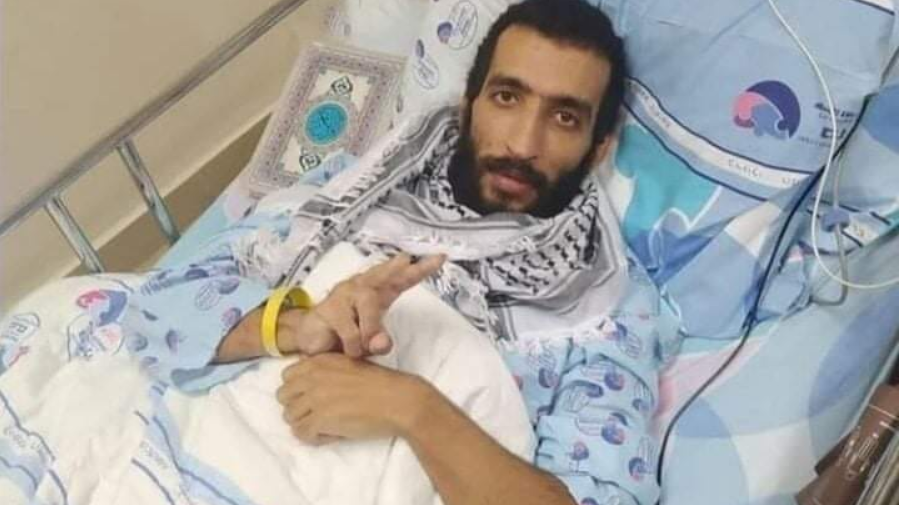
The health of Palestinian prisoner Kayed Fasfous has deteriorated after an almost 2-month open-ended hunger strike to protest Israel’s so-called policy of administrative detention, detaining him without trial.
The Palestinian Prisoners’ Society (PPS) announced in a statement that on Friday hunger striking Fasfous was transferred from his prison cell in the Ashkelon detention center to the Ramla Prison’s infirmary after his health worsened.
About 59 days into a hunger strike led Palestinian medical officials to warn about Fasfous’ health condition which has declined sharply and reached a critical point.
Lately, his wife, Hala Nammura, told the Palestinian Information Center that her husband suffers from severe pains all over his body, especially in his joints, a constant headache, failure to move and talk, and other health issues.
Nammura said that her husband was already suffering from joint pains as a result of his previous detention and hunger strikes, but the pains have exacerbated during his current hunger strike.
She affirmed that her husband would continue his hunger strike until his death unless he was released and allowed to return to his family.
According to his family, the Israel Prison Service (IPS) has deprived Fasfous of getting necessary minerals and essential treatment ever since he started his hunger strike nearly two months ago, in an attempt to pressure him to quit the protest action.
Administrative detention is a procedure that enables the Israeli military to hold prisoners indefinitely on so-called secret information without charging them or allowing them to stand trial.
Cancer-stricken Palestinian prisoner develops new tumors
Meanwhile, the PPS stated that recent medical tests show that prisoner Ali al-Haroub, who suffers from cancer, has developed new tumors.
It said in a statement on Saturday that Haroub, who is currently being held in the Negev jail, is one of at least 24 detainees suffering from different types and stages of cancer in Israeli jails.
The PPS accused the Israeli Prison Service of medically neglecting the cancer patients in its jails.
Haroub who has been serving 25 years in jail since 2010, developed cancer over two years ago, but the IPS ignored his need for medical diagnosis, which worsened his condition.
There are reportedly more than 7,000 Palestinians held in Israeli jails. Human rights organizations say Israel violates all the rights and freedoms granted to prisoners by the Fourth Geneva Convention.
Palestinian detainees have continuously resorted to open-ended hunger strikes in an attempt to express outrage at the detentions. Israeli jail authorities keep Palestinian prisoners under deplorable conditions without proper hygienic standards. Palestinian inmates have also been subject to systematic torture, harassment, and repression.





Leave a Reply